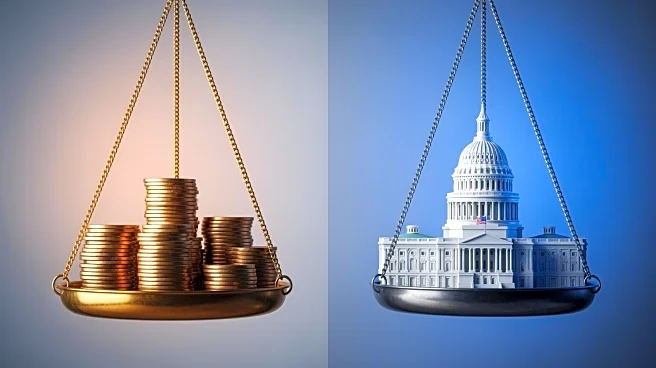What's Happening?
Hedrick Smith, a Pulitzer Prize-winning journalist, has highlighted significant dichotomies affecting the United States in a recent interview. Smith points out the growing economic divide, where the wealthiest Americans have seen substantial gains since
1980, while the middle class has experienced stagnation. This economic disparity has led to political consequences, with increasing polarization and a lack of compromise in Congress. Smith also notes the shift in Congress towards party-line voting, contrasting with historical bipartisan cooperation. Additionally, he discusses the impact of artificial intelligence on white-collar jobs and the shortage of skilled labor in various sectors.
Why It's Important?
The issues raised by Smith underscore critical challenges facing the U.S. economy and political system. The widening economic gap could lead to increased social unrest and political instability, as more citizens feel left behind. The lack of bipartisan cooperation in Congress hampers effective governance and policy-making, potentially stalling progress on key issues. The displacement of jobs by artificial intelligence and the shortage of skilled labor could further exacerbate economic inequalities. These factors collectively threaten the social fabric and economic stability of the nation, highlighting the need for strategic policy interventions.















